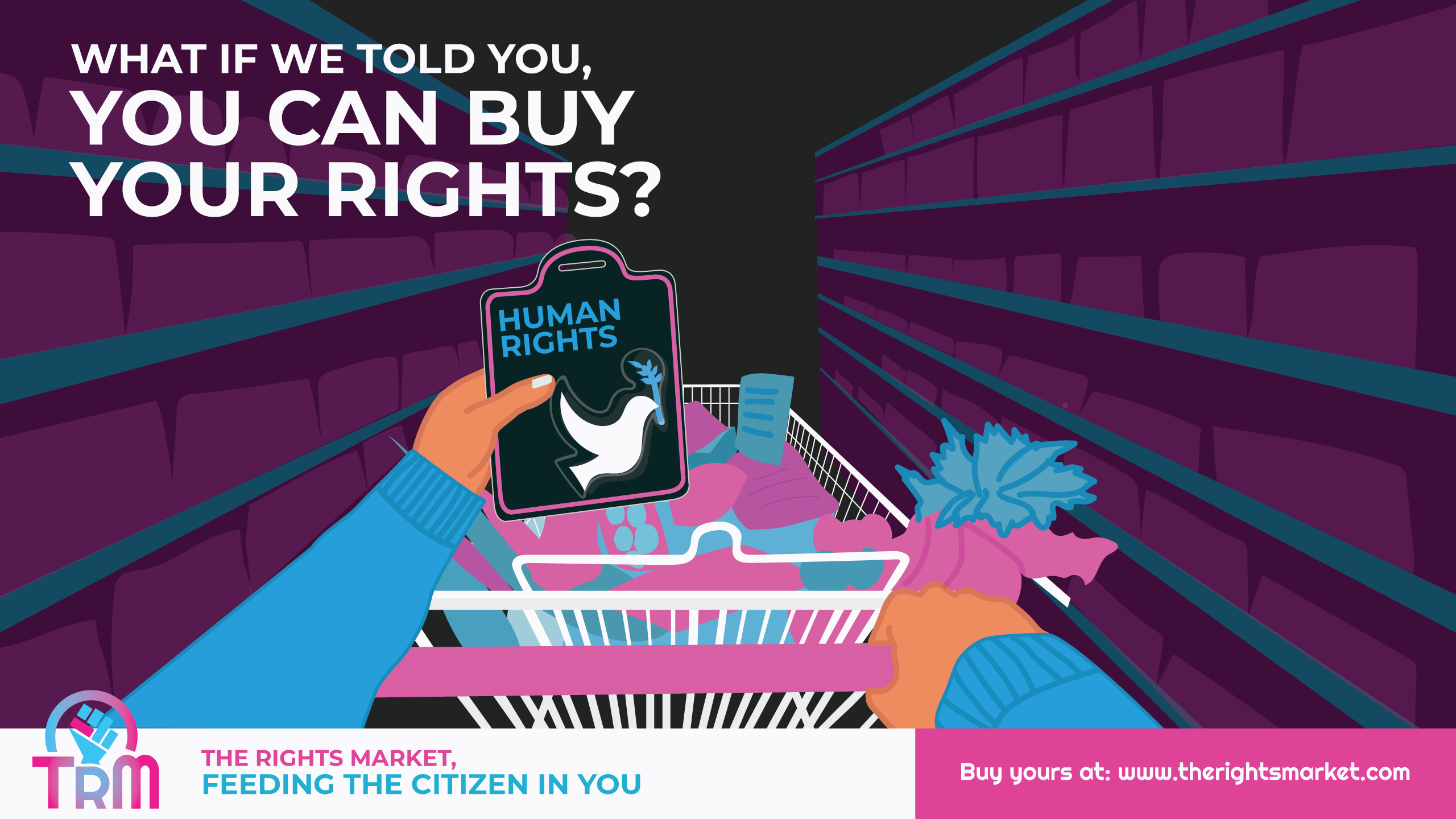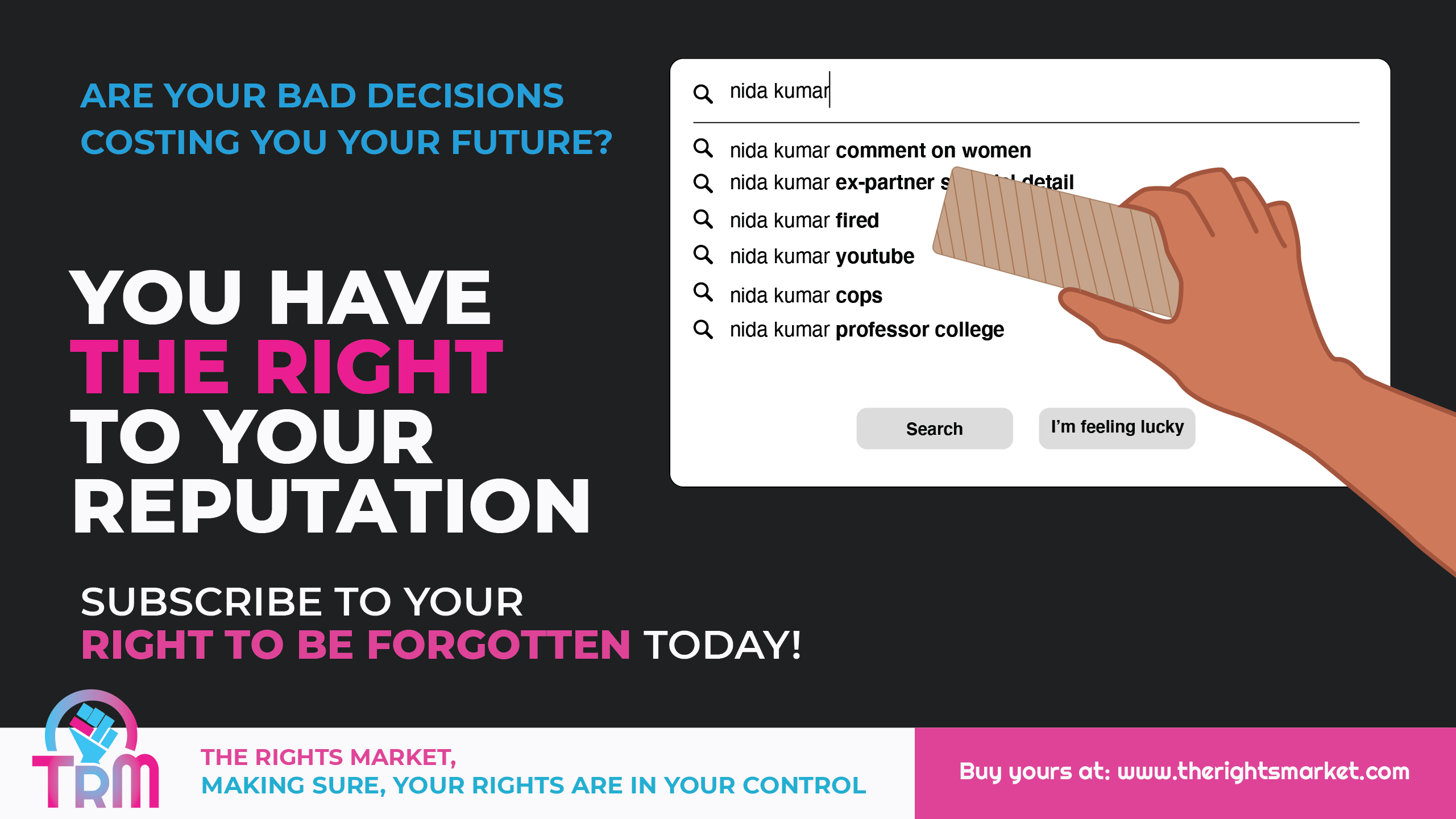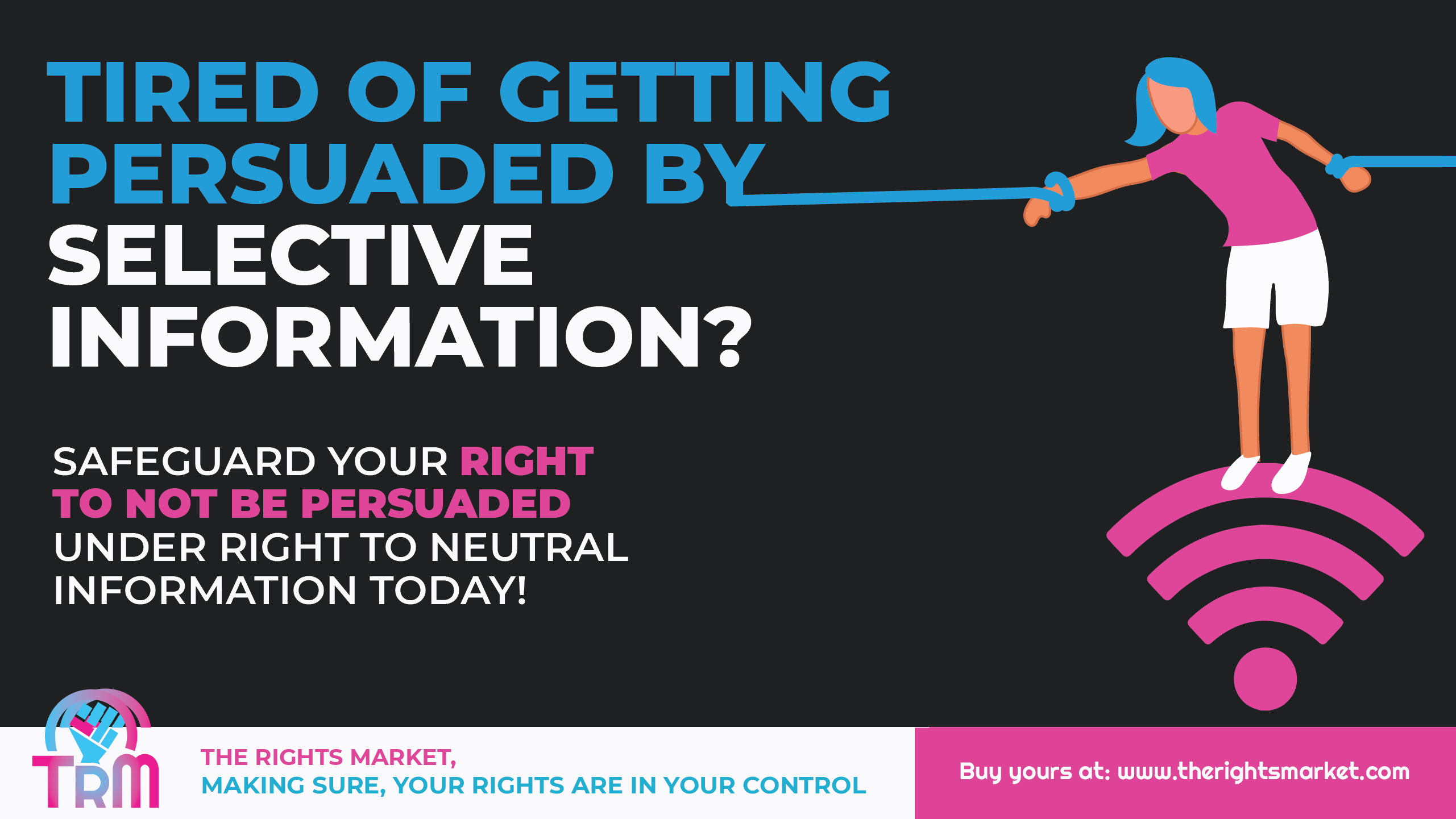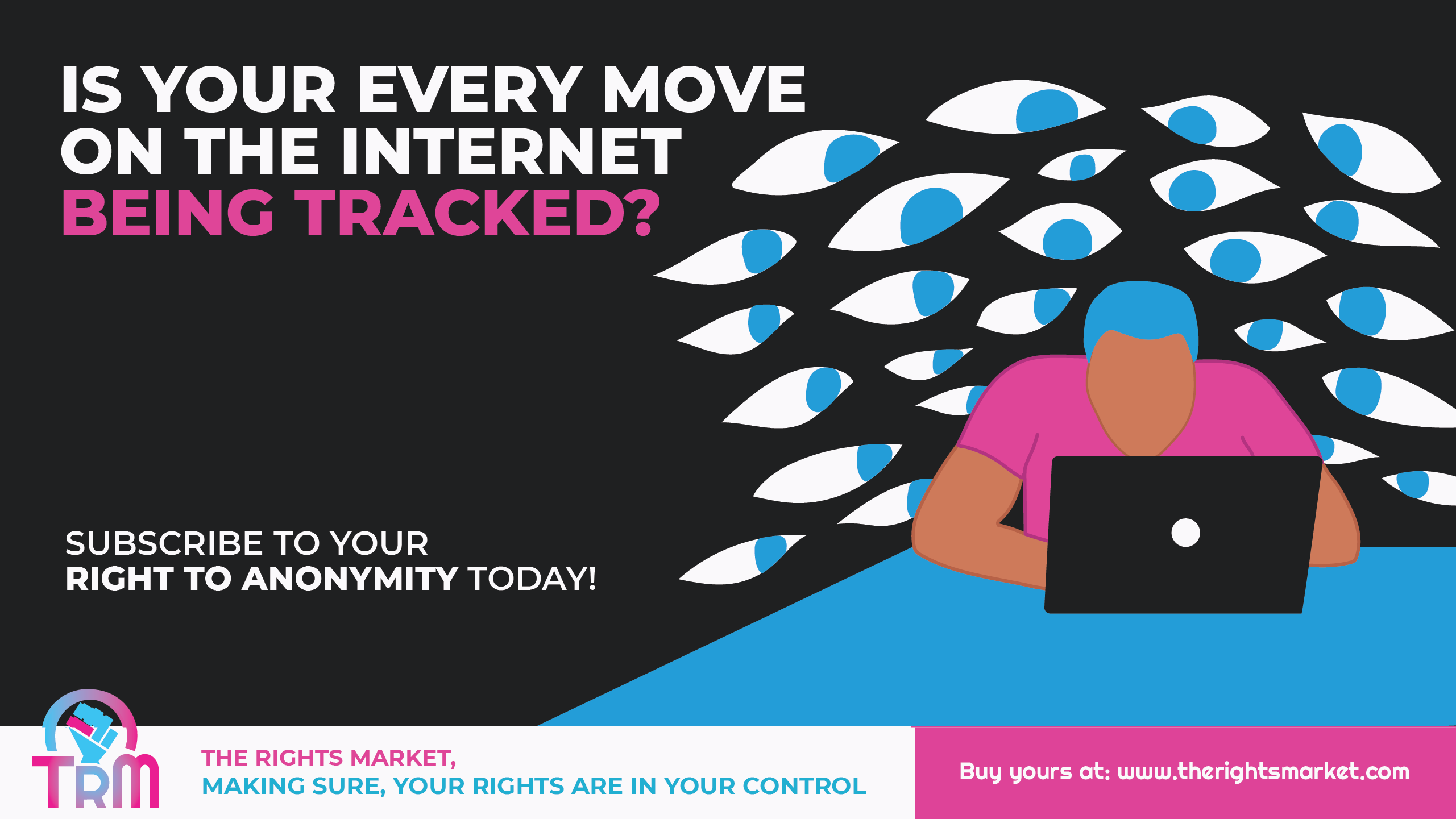The Rights Market





Barabar
-
“...it is easier to imagine the end of the world than the end of capitalism.” - Slavoj Žižek
The Rights Market (TRM), www.therightsmarket.com, is a speculative fiction project designed to critically engage with the (non)universality of human rights in an increasingly digital and capitalist world, wherein it is easier to imagine the end of human rights, than the end of capitalism. We already witness many nations struggle to ensure basic human rights to their people, and corporations filling in these gaps with stealth and ease especially as our digital and physical realities merge. Covid-19 has made these gaps glaringly obvious, while also forcing us to acknowledge that our systems have been exclusionary and unequal by design and not by default.
With TRM, we take this reality one step further, imagining a Big Tech takeover of human rights protection and management which promises more efficient and user-friendly rights systems. The project is set in the year 2035, in an era called the ‘Digicene’ an era where the digital is so enmeshed with our physical existence that we are no longer able to separate the two. This world is also witnessing a transition into Late Late capitalism, where anything that can be capitalized, will be capitalized; and anything that cannot be capitalized, will be destroyed.
It is in this context that a human rights lawyer and a human centered designer come together to build ‘The Rights Market’. TRM is a fictional online shopping platform, where a new breed of customer-citizens are able to pick and choose rights and protections suited for their lifestyle, available through various payment models. It functions as a socially conscious enterprise which would work to take human rights to the farthest corners of the world, where everyone, irrespective of gender, caste, religion, colour, creed, occupation, or location would have equal access to their rights accompanied by the best rights management service.
This project thus, looks at the intersections of rights and privileges, of capitalism and the digital, of Big Tech and Big Government, and of power and justice. We explore the emergent flaws in the bubbled idea of human rights. We explore the future of capitalism powered by the internet. We explore the fight for power and privilege across the world. We explore how the digital connects and divides, builds and breaks, empowers and exploits. What else is possible to ensure the dignity of human beings? Or should ‘all’ humans even be entitled to a life of dignity in the first place? We raise questions about human rights in the present day, the already obvious link between capitalism and human rights, racism, sexism, ableism, and casteism. We want to speculate a future possibility of human rights and offer a provocation on possible alternatives to the human rights systems.
About Us
The Rights Market is a speculative fiction project designed and conceptualized by Barabar Design, a New Delhi based design collaborative. Barabar (roughly translates to ‘equal’) is co-founded by Bhawna Parmar and Rubina Singh who work at the intersections of design and social justice. Learn more about our work at www.barabardesign.com
-
“...it is easier to imagine the end of the world than the end of capitalism.” - Slavoj Žižek
The Rights Market (TRM), www.therightsmarket.com, is a speculative fiction project designed to critically engage with the (non)universality of human rights in an increasingly digital and capitalist world, wherein it is easier to imagine the end of human rights, than the end of capitalism. We already witness many nations struggle to ensure basic human rights to their people, and corporations filling in these gaps with stealth and ease especially as our digital and physical realities merge. Covid-19 has made these gaps glaringly obvious, while also forcing us to acknowledge that our systems have been exclusionary and unequal by design and not by default.
With The Rights Market, we take this reality one step further, imagining a Big Tech takeover of human rights protection and management which promises more efficient and user-friendly rights systems. The project is set in the year 2035, in an era called the ‘Digicene’ where digital and physical realms are deeply enmeshed. TRM is a fictional online shopping platform, where a new breed of customer-citizens are able to pick and choose rights and protections suited for their lifestyle, available through various payment models.
TRM is looking at the intersections of rights and privileges, of capitalism and the digital, of Big Tech and Big Government, and of power and justice. We explore the emergent flaws in the bubbled idea of human rights. We explore the future of capitalism powered by the internet. We explore the fight for power and privilege across the world. We explore how the digital connects and divides, builds and breaks, empowers and exploits. What else is possible to ensure the dignity of human beings? Or should ‘all’ humans even be entitled to a life of dignity in the first place? We raise questions about human rights in the present day, the already obvious link between capitalism and human rights, racism, sexism, ableism, and casteism. We want to speculate a future possibility of human rights and offer a provocation on possible alternatives to the human rights systems.
Project Background
Human rights have not lived up to their promised potential. Centuries of ‘rights’ later, we still struggle to ensure basic human rights - the absolute basics one is entitled to simply for being - for most people on this planet. Rights have always been, and are now increasingly recognized as privileges, usually afforded to those on top of the oppression pyramid.
The Covid-19 pandemic exposed this distinction starkly. As the virus grazed the white world, vaccines and treatments came out much sooner, than for diseases like Tuberculosis or Malaria which have been disproportionately impacting the ‘third world’ for decades. Even within a country like India for example, the right to essential medical care like access to oxygen concentrators or vaccines in the pandemic was hostage to a digital, caste, and gender divide. All of this is symptomatic of an increasingly corporatised world where big corporations are taking over and shaping policies and choosing governments, often at the cost of excluding the most marginalized and denying their humanity.
The Context
The year is 2035. Our world has entered into late late-capitalism. Everything in this world is up for consumption and everything that can be consumed is corporatised. This new world was in the making for quite some time and many activists, techies, and intellectuals had predicted a global shift. The age of surveillance capitalism marked the end of the anthropocene, where big tech treated human data as raw material waiting to be exploited. This surveillance that the humans had not fully consented to was predicting their future behaviour and piping it into the market for its refinement. Behaviour data was also being sold to governments aiding them in influencing law abiding citizen behaviour and cognition. It wasn’t just the surveillance through the virtual that was the defining character of the previous era but also the hyperconsumerism that was dominating the world.

As this digital capitalism became intrinsically enmeshed with our existence, a new epoch we call ‘Digicene’ emerged, where the divide between the virtual and the physical plane has vanished. The actuality of almost all species, living or nonliving, is now defined within the bounds of the physical intertwined with the virtual, giving rise to a new way of hybrid existing.
The Internet, even though made for government and military usage, was taken over by big tech in its nascent stage. And the physical world was getting corporatised under the label of ‘development’. Increasing privatisation was only catering to a certain privileged section of the population who anyway, had the most resources and capital at their disposal. Greater privatisation also meant more choices, better customer service, somewhat better access and creation of luxurious pockets. The privileged were deciding for the rest and these socio-political differences meant that the rest did not have a choice but to follow along.
Soon enough, with a combination of lobbying, data blackmail, and their own insatiable need for power, national leaders and international bodies found themselves in a tight spot when it came to good governance and human rights. The privileged citizenry also demanded a reclamation of power, lost in the surveillance capitalism era, through negotiation with the corporations in an attempt to coexist somewhat peacefully with them. They desired new rights and improved rights management in the Digicene. Being commodities themselves, trying to navigate their being in a highly commodified Digicene, it did not raise many eyebrows to have human rights commodified as well.
And hence, the idea of human rights, already flawed, became commercialized in a post-human rights world. Human rights lost their theoretical sanctity and their true nature as ‘privileges’, rather than ‘rights’, gained credence. As people also found more faith and reliability in Amazons and Facebooks than in their elected representatives, a new market emerged which offered these privileges, for sale, to those who can afford to pay for them with money or data.
Founding The Rights Market
The two founders of TRM, a human rights lawyer and a human centered designer, collaborated in 2021 to address this humongous gap in access and protection of human rights. They founded TRM, a socially conscious enterprise which would work to take human rights to the farthest corners of the world, where everyone, irrespective of gender, caste, religion, colour, creed, occupation, or location would have equal access to their rights accompanied by the best rights management service. TRM lives in the form of an online shopping platform that makes it easier for users to access and enforce their rights.
Exploiting a market where rights were yet to emerge to protect global citizens, TRM has designed and enforced new age digital rights or Neo Rights in collaboration with various Big Tech companies. Users, already disgruntled with bureaucratic and dysfunctional rights management in their home States, found much needed efficiency and customer friendly rights-based services through TRM. Through constant user support, TRM was able to offer better rights management services in the digital realm than most countries in the world.
By 2035, with growing customer support and capital investments by Big Tech, TRM has now become the leading rights management company in the world. It is now developing partnerships with various national and state governments to create better rights services for citizens, going beyond digital rights to protect civil and fundamental human rights.
About Us
The Rights Market is a speculative fiction project designed and conceptualized by Barabar Design, a New Delhi based design collaborative. Barabar (roughly translates to ‘equal’) is co-founded by Bhawna Parmar and Rubina Singh who work at the intersections of design and social justice. Learn more about our work at www.barabardesign.com